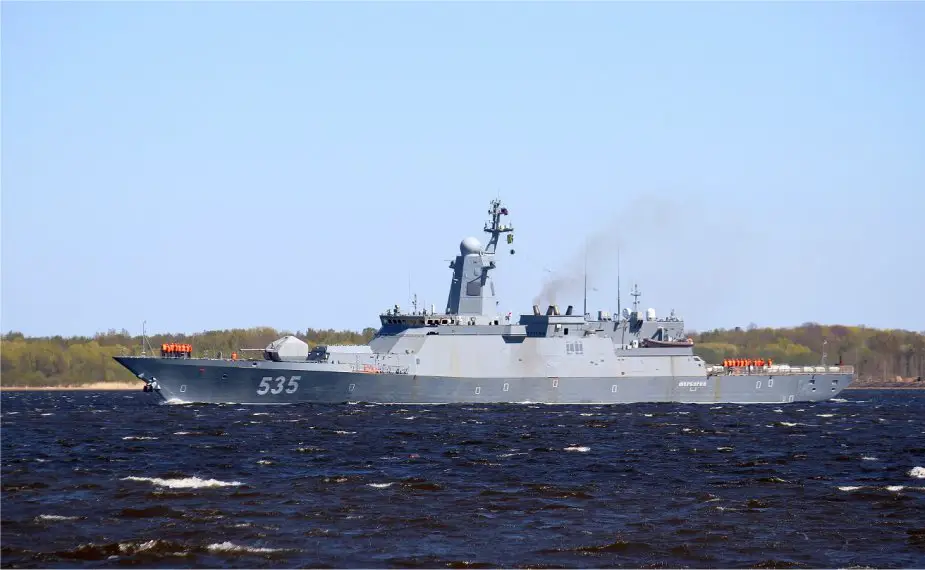Breaking news
Russian corvette Mercury successfully completes trials in Baltic Sea.
According to information published by Tass on March 3, 2023, the newest multifunctional Mercury corvette has returned to a base for overhaul after the final stage of trials in the Baltic Sea, the Severnaya Verf Shipyard said.
Follow Navy Recognition on Google News at this link
 Russian Project 20380 corvette Mercury. (Picture source: bmpd)
Russian Project 20380 corvette Mercury. (Picture source: bmpd)
Previous reports said that the corvette might be handed over to the Russian Navy in the first decade of March.
On February 28 the Baltic Fleet press service reported that the Mercury’s crew had successfully used the Redut anti-aircraft missile system to fire at an air target, which was simulating an anti-ship cruise missile of the conditional adversary, in the final stage of trials at the Baltic Fleet sea range. It was clarified that an anti-ship cruise missile launched from the Passat small missile ship of the Baltic Fleet had been used as the air target.
The Baltic Fleet’s sea range, where the Mercury underwent the final trials, had been announced temporarily dangerous for commercial navigation. About 10 ships and support vessels of the Baltic Fleet guarded the security of the firing and missile launching area.
The Mercury is the fifth project 20380 ship, which has been built at the Severnaya Verf Shipyard (it is affiliated with the United Shipbuilding Corporation).
This ship has a standard displacement of 1,800 tons and a full displacement of 2,200 tons. She measures 104.5 meters (343 feet) in length, 13 meters (43 feet) in beam, and has a draught of 3.7 meters (12 feet).
The ship is powered by four diesel generators that produce a total of 2,520 kilowatts of electricity at 380/220 volts and 50 hertz. She is propelled by two shafts and four Kolomna 16D49 diesel engines that generate 23,664 horsepower (17.6 megawatts) in a combined diesel and diesel (CODAD) configuration, allowing it to reach a maximum speed of 27 knots (50 kilometers per hour or 31 miles per hour).
The ship has a range of 3,800 nautical miles (7,000 kilometers or 4,400 miles) at a speed of 14 knots (26 kilometers per hour or 16 miles per hour) and an endurance of 15 days. She has a crew complement of 90 people.
The project 20380 warships carry the Uran missile system with four container launching ramps and an ammunition load consisting of eight Kh-35U anti-ship missiles with a firing range of up to 260 km. They are designed to patrol coastal and off-shore maritime areas and fight against hostile surface ships, submarines, and aircraft.
The corvette was laid down on February 20, 2015 under the name Retivyi. The ship changed its name to Mercury on October 15, 2021 in honor of a 19th-century sailing ship of the Black Sea fleet that distinguished itself in the 1828-1829 Russian-Turkish war.




























